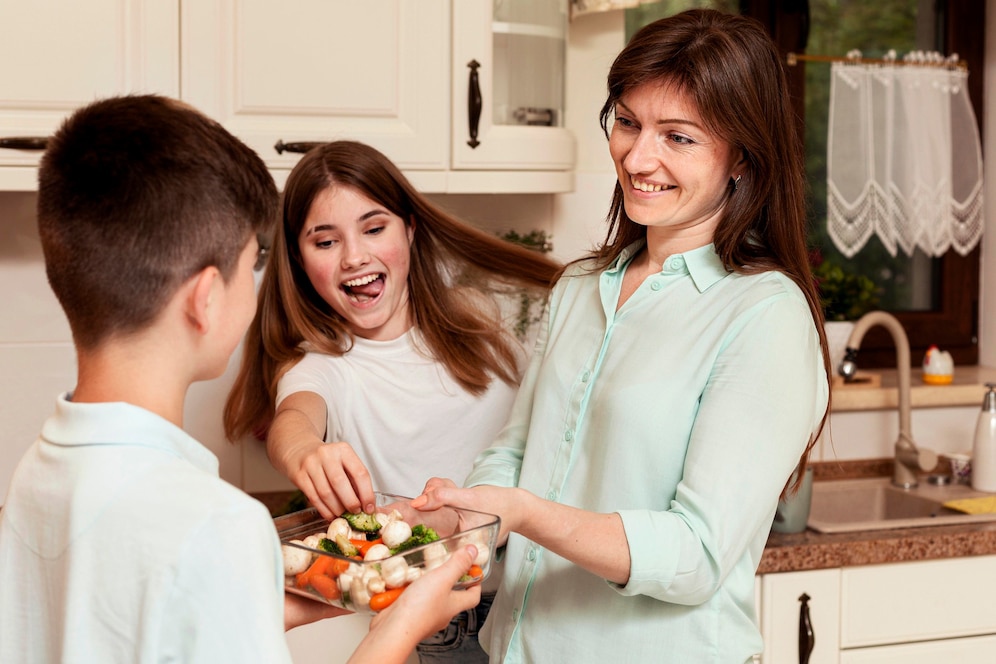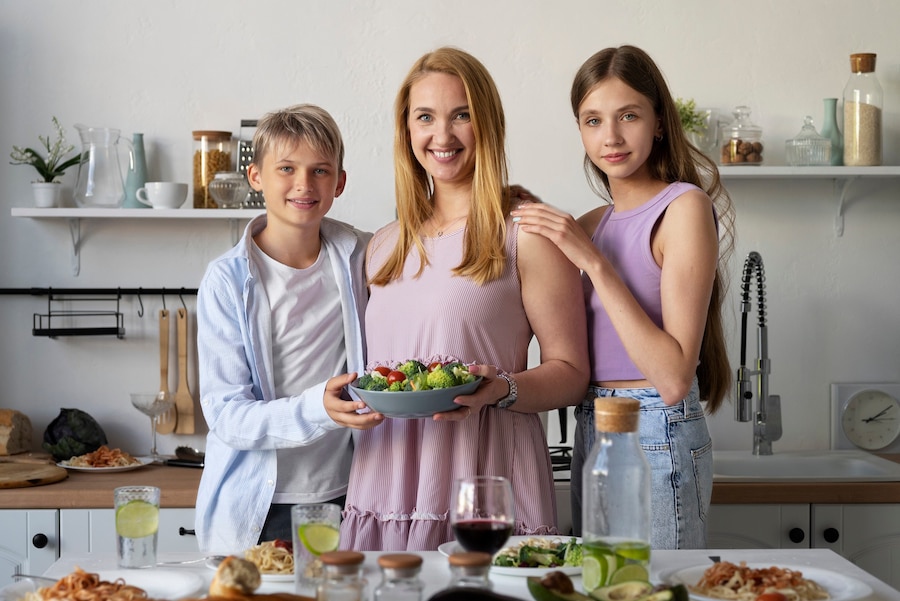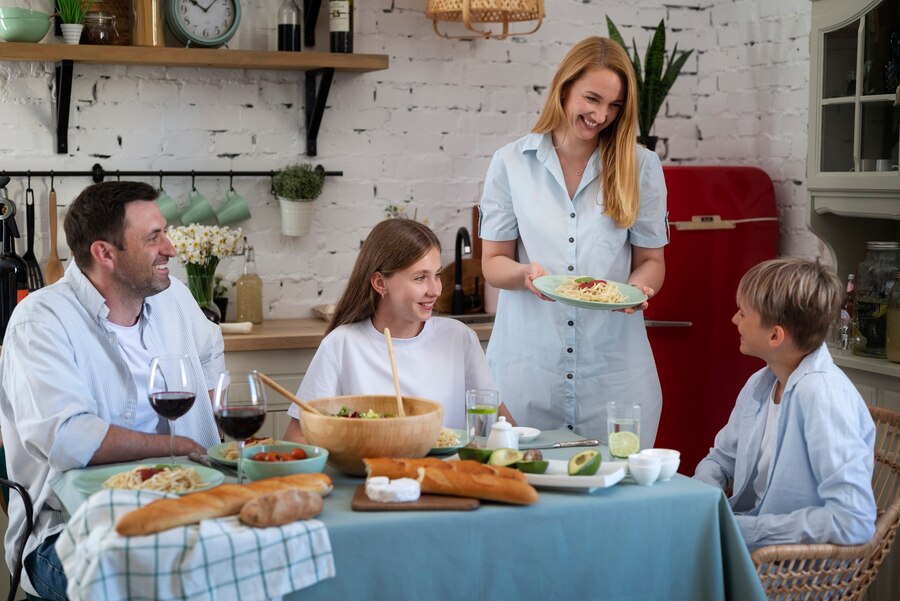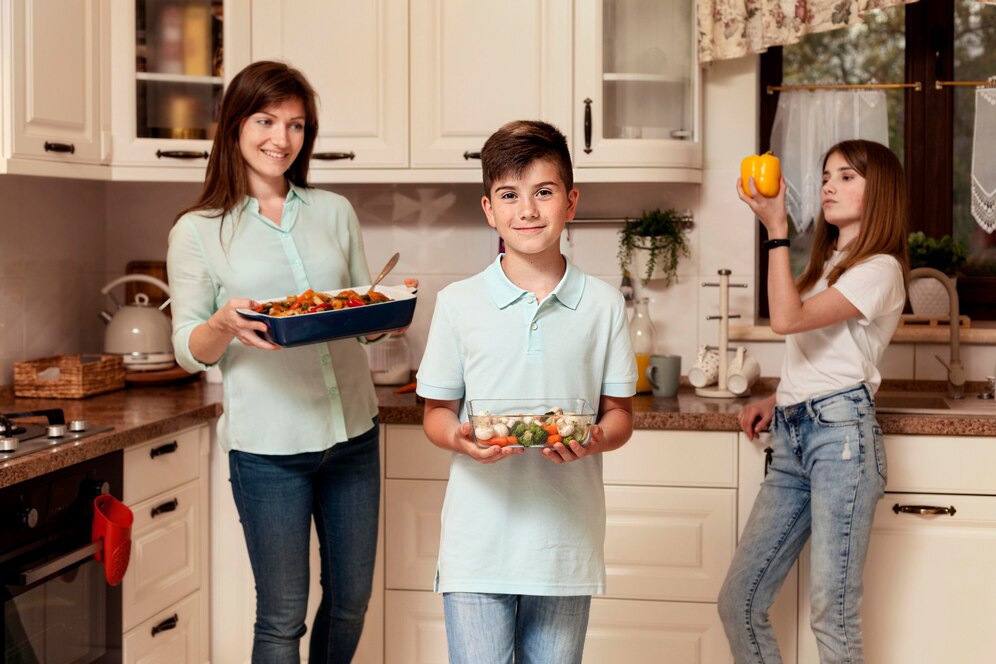
Helping Kids Build Healthy Friendships During Puberty
When Friendships Start to Shift
One minute, they’re sharing silly secrets and snacks with their best mate; the next, they’re sitting alone at lunch or suddenly declaring a new “best friend forever.” If your child is going through puberty, chances are you’ve noticed a change in their friendships — and possibly in their entire approach to socialising.
Puberty doesn’t just change bodies and emotions; it also transforms how children relate to each other. Friendships become more intense, more meaningful, and — sometimes — more complicated.
As a parent, it can be tricky to know when to step in, when to observe, and how best to support your tween or teen as they build the skills they’ll need for healthy, lasting relationships.
This blog is your guide to understanding friendship changes during puberty, supporting social growth, and helping your child develop strong, respectful, and emotionally intelligent connections.
Understanding Friendship Changes During Puberty

Why Puberty Affects Friendships
As children enter puberty, they undergo more than just physical changes. Their brains, emotional regulation, and sense of identity are evolving rapidly.
Key shifts include:
- Increased emotional sensitivity: Hormonal fluctuations can make social interactions more intense.
- A stronger sense of identity: Kids start asking, “Who am I?” and look to peers for reflection.
- More complex communication: Friendships rely on empathy, compromise, and deeper conversation.
- Desire for independence: Peers begin to matter more than parents, and sometimes more than old friendships.
Common Tween and Teen Friendship Patterns
You may notice your child:
- Drifting away from childhood friends
- Becoming more selective about who they spend time with
- Experiencing more “drama” or conflict in friendships
- Feeling left out or questioning their worth
- Seeking friendships based on shared values, interests, or social identity
These patterns can feel confusing or even painful, but they’re part of healthy development. Your child is learning what they value in others — and in themselves.
Building the Foundation for Healthy Teen Friendships
Teach What a Healthy Friendship Looks Like
Many kids (and adults!) don’t naturally know what a positive friendship feels like. Help them identify key traits.
- Mutual respect
- Trust and honesty
- Support through ups and downs
- Space for individuality
- Comfort in being yourself
You can say:
“A good friend listens, cheers you on, and respects your boundaries — even when you disagree.”
Talk About Red Flags Too
It’s equally important to help them spot unhealthy friendship behaviours, such as:
- Manipulation or guilt-tripping
- Gossip and exclusion
- Pressuring them to break the rules
- Ignoring or mocking their feelings
Explain:
“If a friend makes you feel small, unsafe, or like you have to earn their approval, that’s not healthy.”
Encourage Emotional Literacy
Tweens and teens often feel deeply but lack the words to express it. Support emotional growth by:
- Naming emotions together (“It sounds like you feel hurt — does that fit?”)
- Modelling emotional honesty in your own relationships
- Discussing how others might feel in a given situation
The more emotionally fluent they become, the better they’ll be at resolving conflict and showing empathy.
Supporting Social Development at Home

1. Keep Communication Open — Even If It’s One-Sided
Your child may not tell you everything, but they’ll benefit from knowing you’re there to listen, no matter what.
Try:
- “You don’t have to tell me all the details, but if something’s bothering you, I’m here.”
- “Do you want advice, or just to vent?”
Respecting their boundaries builds trust.
2. Validate Their Experience
What feels like “just drama” to you may feel monumental to them.
Instead of dismissing it, offer understanding:
“It sounds like it really hurt when they left you out — that makes sense.”
Resist the urge to fix everything. Often, being heard is enough.
3. Share Stories (Without Taking Over)
Personal experiences can help them feel less alone:
“I remember losing a close friend at your age — I felt so lost. But it also taught me a lot about what I wanted in friendships.”
Just be careful not to make it about you. Keep the focus on their feelings and growth.
4. Facilitate Social Opportunities (Without Pushing)
Help your child stay socially connected by:
- Encouraging shared-interest clubs or sports
- Hosting low-pressure hangouts (movie nights, games)
- Supporting online friendships with safety boundaries
If they’re shy or struggling, start small — even one meaningful connection makes a difference.
Navigating Conflict and Peer Pressure
Help Them Practice Conflict Resolution
Friendship hiccups are normal. Give them the tools to handle it maturely:
- Use “I” statements: “I felt hurt when…”
- Ask questions instead of accusing: “What did you mean by that?”
- Set boundaries: “I don’t want to be around teasing.”
Roleplay if they’re nervous. Praise attempts to resolve things kindly.
Tackle Peer Pressure Together
As social stakes rise, so does the pressure to “fit in.” Peer pressure is difficult for everybody.
Talk about:
- How to say no without being rude
- The power of choosing friends who respect your values
- Situations where it’s okay to walk away
Offer scripts they can use:
“I’m not comfortable with that.” “I’d rather not — but you do you!”
When Friendships End: Supporting Loss and Change
Validate Their Grief
Losing a close friend can feel like a breakup. Don’t minimise the pain.
Say:
“It’s okay to feel sad, confused, or even angry. Friendships matter — and losing one hurts.”
Let them cry, vent, or retreat — and gently keep the door open to new experiences.
Encourage Reflection Without Blame
Help them ask:
- What did I like about that friendship?
- What felt hard or draining?
- What do I want to look for next time?
This turns loss into learning.
Celebrate Healthy Goodbyes
Not all friendships are meant to last forever. When partings are peaceful, show them it’s okay to outgrow people.
“You can care about someone and still choose to move on.”
Help them leave relationships with dignity, not drama.
Recognising When to Step In
Sometimes, friendship struggles go beyond typical ups and downs. Watch for:
- Sudden withdrawal or isolation
- Bullying, in person or online
- Drastic personality changes linked to peer groups
- Signs of anxiety, depression, or low self-worth
If you’re concerned:
- Start with gentle questions
- Loop in teachers, mentors, or a counsellor
- Reassure them it’s not tattling — it’s caring
Building Resilience and Self-Worth
Healthy friendships start with a healthy sense of self. Help your child:
- Explore their interests and strengths
- Celebrate effort and kindness over popularity
- Build confidence in being alone sometimes
Let them know:
“The right friends won’t make you feel like you have to change who you are.”
And most importantly:
“You are enough — just as you are.”
Conclusion: Growing Friendship Muscles

Puberty is messy, magical, and full of change — and that includes friendships. As your child shifts from playground pals to deeper bonds, they’re building the skills that shape every relationship they’ll have moving forward.
By listening, guiding, and showing up with empathy, you help them grow not just into a good friend — but into a kind, emotionally intelligent person who knows how to connect with others.
Want to start the conversation? Try asking your child: “What do you value most in a friend?” Then listen — and see where it leads.
Do you have a tip or story about supporting your child through a friendship change? Drop it in the comments — your insight could help another family feel less alone.


